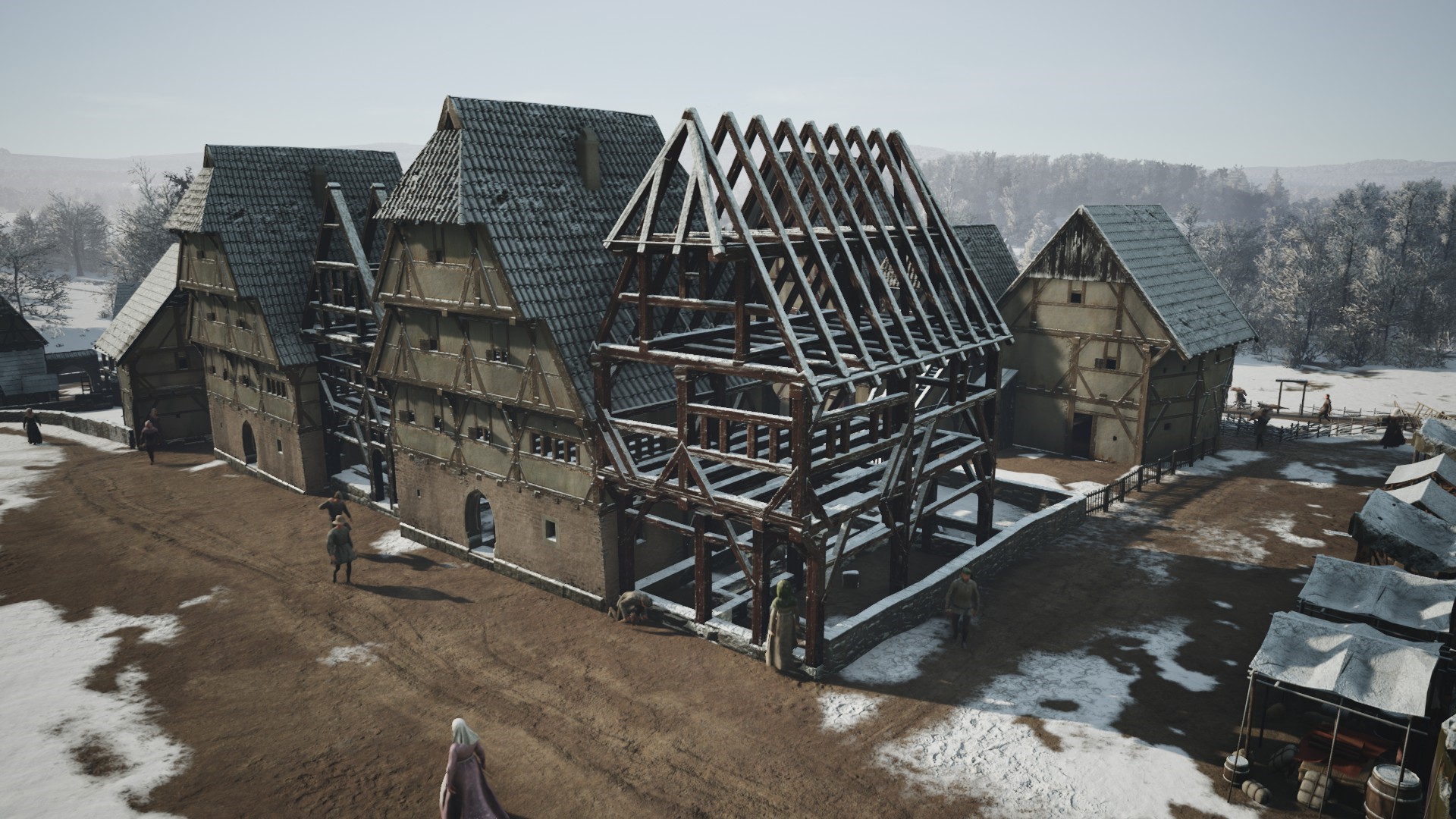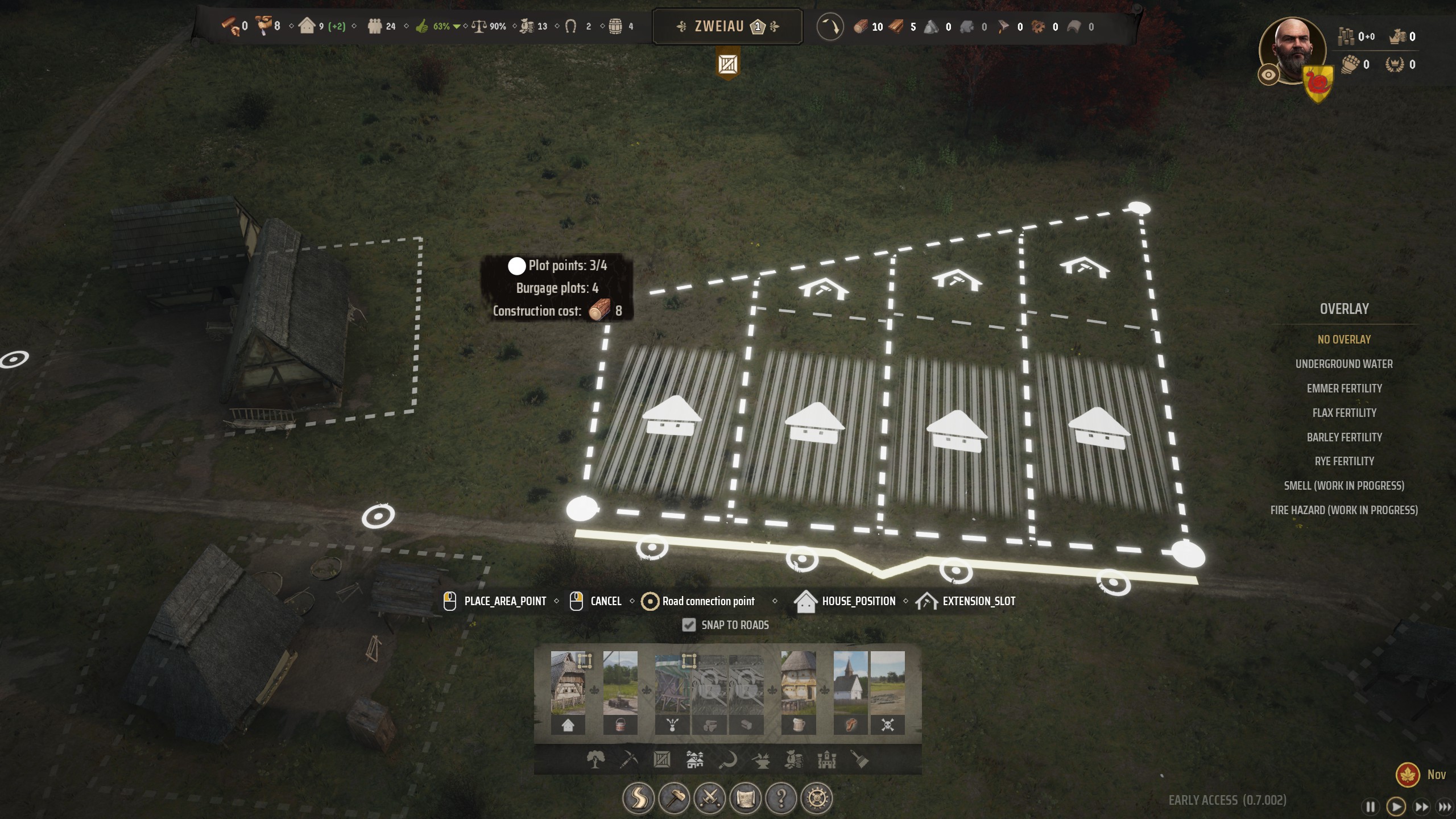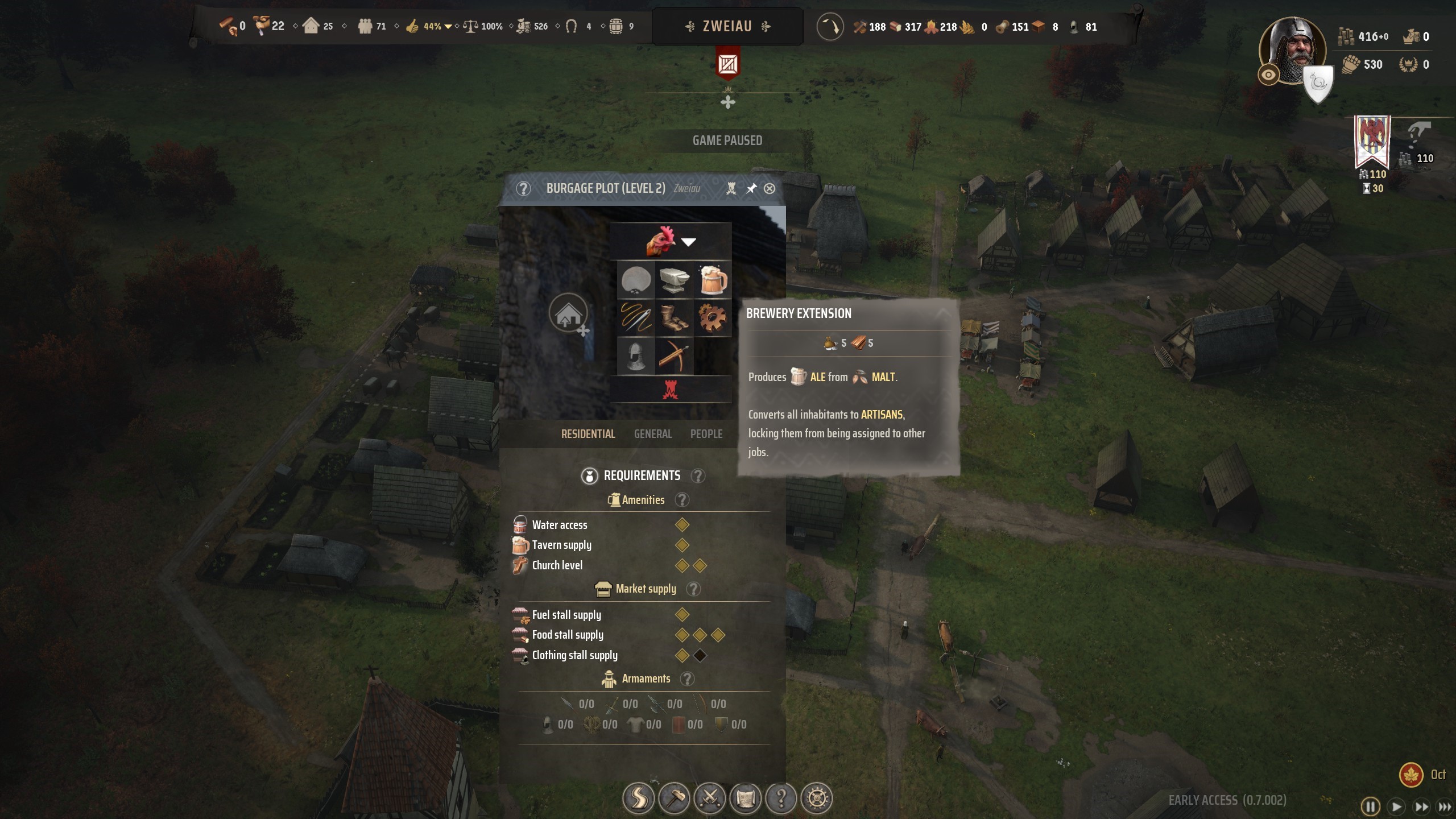Don't neglect Manor Lords' most important building—the humble burgage plot
These peasant dwellings are the cornerstone of your market town.

Manor Lords isn't your typical city-builder—the first time I realised that was when I started building burgage plots. At first, these humble peasant abodes look like your standard dwelling, and so in typical city-builder fashion I created them as compact as possible—that good ol' trick to maximise space and population. What I didn't count on was burgage plots aren't just your average house; they're the foundation of Manor Lords' economy.
In my first village of efficiently-sized dwellings I quickly became confused as to why there were so many resources I was unable to craft through buildings, not realising that I was hamstringing myself by building tiny houses. Burgage plots should be big; the wider you stretch them, the more benefits they have, whether it's space to cram in more families, or most important of all: workshops. If you drag out your burgage plot until you see the house symbol with the hammer, you'll get a little extension where a family can do even more back-breaking labour.
Workshops are hands down the most vital production buildings in Manor Lords. You can use them to start vegetable gardens—which will benefit from that giant plot size—build hen houses to collect eggs, goat pens for hides, or even apple orchards if you unlock the relevant technology using a development point. The best part is that all of this tasty food is collected passively by the families living there, and provided you have a family in your granary, it'll make its way to the marketplace to delight your populace for bonus approval.
And the benefits don't stop there; once you build a church and upgrade your burgage plots to level two, their importance only grows. Tired of your peasants taking forever to bake bread in the communal oven? Unlock bakeries with a development point and construct one in a burgage plot. Need ale to supply your tavern? Turns out that besides buying it, your only option is to create a brewery extension in a burgage plot to make it from malt.


The list goes on: shields, warbows, weapons, and even armour to create your militia. They're all items of immense value that can only be produced in a burgage plot workshop. These items aren't free to produce, though.
Manor Lords is a bit inconsistent mentioning what's required up front—understandable for an early access game—so here's a list of what each burgage plot workshop requires:
- Bakery extension: Makes bread from flour
- Tailor's workshop: Makes clothes from linen and dye, cloaks from yarn and dye, and gambesons from linen
- Armorer's workshop: Once you unlock the relevant technologies, makes helmets, mail, and plate armour from iron slabs
- Blacksmith's workshop: Makes tools from iron slabs, spears from iron slabs and planks, and sidearms from iron slabs
- Cobbler's workshop: Makes shoes from leather
- Bowyer's workshop: Makes warbows from planks
- Brewery extension: Makes ale from malt
- Joiner's workshop: Makes wooden parts and shields from planks
You can build all of these in a burgage plot of level 2 or higher provided you have the necessary materials and regional wealth to purchase them. When you do, the family living there will become dedicated artisans all year round, meaning you can't reassign them or use them to build stuff as with other families, so make your choice of workshop wisely.
I personally recommend the bowyer's workshop early on, since planks are easy to get, and it provides the only item you require to create archer militia units. You can also export warbows for a decent price through trade. Whatever you choose, don't forget to take advantage of your burgage plots; whether it's passively producing all that food for the market, or having an artisan family craft valuable items based on what you've got in abundance.
If you're anything like me, your past city-building experiences might lead you towards not realising the importance of these buildings, when actually they're one of the coolest and most flavorful mechanics in the game.
The biggest gaming news, reviews and hardware deals
Keep up to date with the most important stories and the best deals, as picked by the PC Gamer team.

Sean's first PC games were Full Throttle and Total Annihilation and his taste has stayed much the same since. When not scouring games for secrets or bashing his head against puzzles, you'll find him revisiting old Total War campaigns, agonizing over his Destiny 2 fit, or still trying to finish the Horus Heresy. Sean has also written for EDGE, Eurogamer, PCGamesN, Wireframe, EGMNOW, and Inverse.

